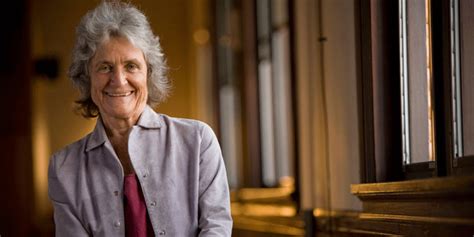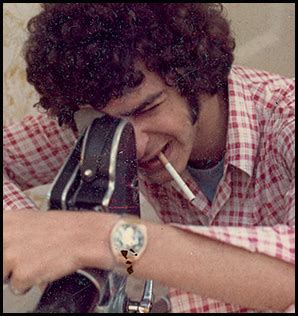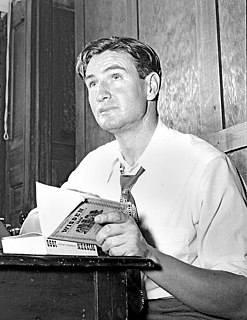A Quote by Wilhelm Stekel
In reality, we are still children. We want to find a playmate for our thoughts and feelings.
Quote Topics
Related Quotes
What I have learned from the teachers with whom I have worked is that, just as there is no simple solution to the arms race, there is no simple answer to how to work with children in the classroom. It is a matter of being present as a whole person, with your own thoughts and feelings, and of accepting children as whole people, with their own thoughts and feelings. It's a matter of working very hard to find out what those thoughts and feelings are, as a starting point for developing a view of a world in which people are as much concerned about other people security as they are about their own
Our experience of reality is the result of the magical alchemy of the creation of our thoughts, our beliefs, our decisions, our attitudes, our feelings. All of these are, for the most part, unconscious. Mindfulness allows us to watch these thoughts and choices and decisions without being triggered and having to take action and give meaning.
You are meant to judge physical reality. You are meant to realize that it is a materialization of your thoughts and feelings and images, that the inner self forms that world. In your terms, you cannot be allowed to go into other dimensions until you have learned the great power of your thoughts and subjective feelings.
The first undeniable reality is that every living thing dies, and the second undeniable reality is that we suffer throughout our lives because we don't understand death. The truth derived from these two points is the importance of clarifying the matter of birth and death. The third undeniable reality is that all of the thoughts and feelings that arise in my head simply arise haphazardly, by chance. And the conclusion we can derive from that is not to hold on to all that comes up in our head. That is what we are doing when we sit zazen.
It’s impossible to monitor every thought we have. Researchers tell us that we have about sixty thousand thoughts a day. Can you imagine how exhausted you’d feel trying to control all sixty thousand of those thoughts? Fortunately there’s an easier way and it’s our feelings. Our feelings let us know what we’re thinking.
In the new alchemy, we have a similar kind of way of thinking. Our internal space includes our intuitions, our thoughts, our senses and our feelings, and from these we construct or build a picture of the outside world. From intuition and thought, we construct time. We also construct space from thought and our sensations. From our senses and our feelings, we experience energy, and from our intuitions and our feelings, we experience motion.
In the middle-class United States, a veneer of "alternative lifestyles" disguises the reality that, here as everywhere, women's apparent "choices" whether or not to have children are still dependent on the far from neutral will of male legislators, jurists, a male medical and pharmaceutical profession, well-financed lobbies, including the prelates of the Catholic Church, and the political reality that women do not as yet have self-determination over our bodies and still live mostly in ignorance of our authentic physicality, our possible choices, our eroticism itself.





































